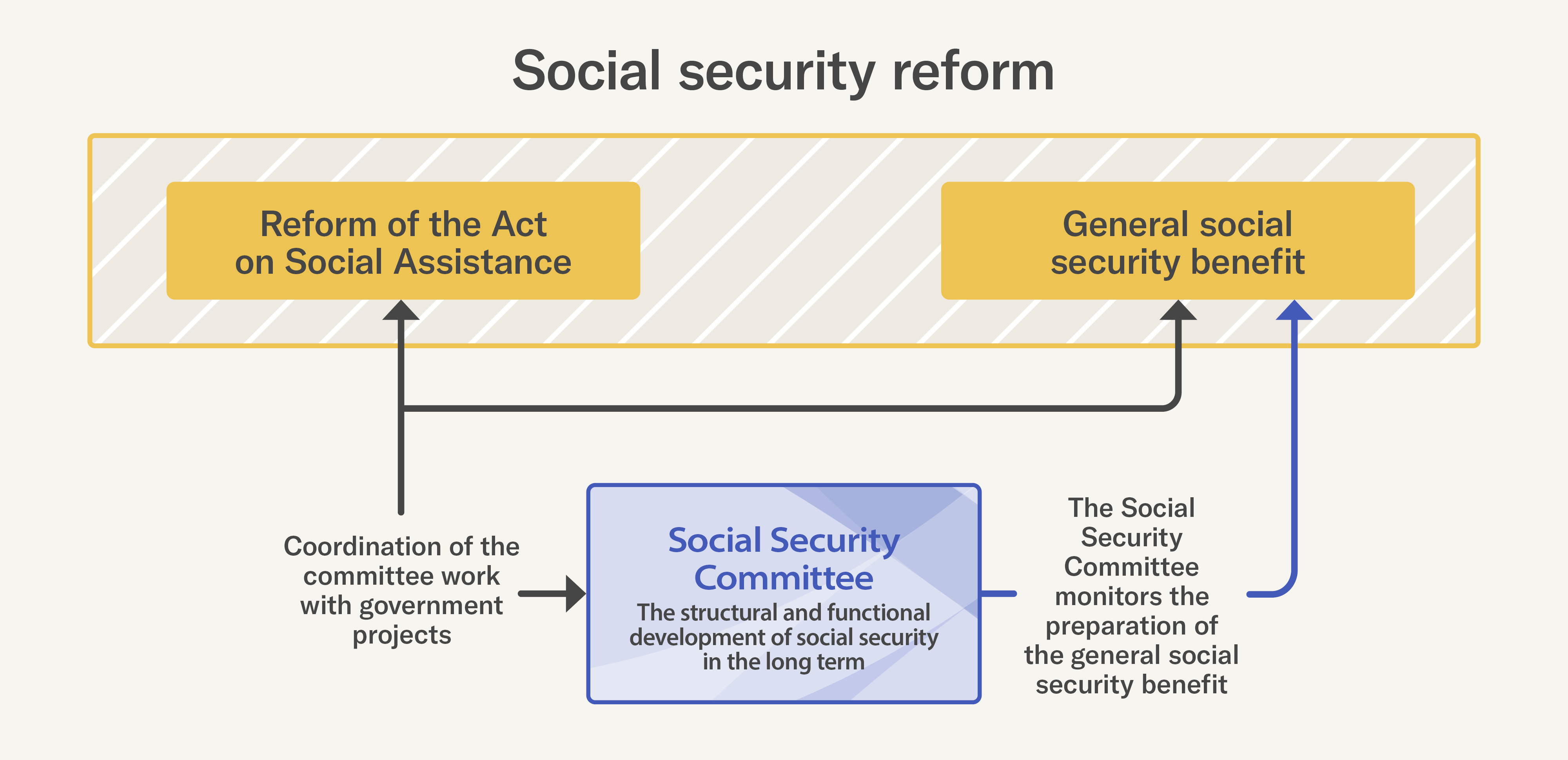Social security reform
Social security will be reformed during the ongoing parliamentary term through government projects and the work of the Social Security Committee. The aim of the social security reform is to make the social security system smoother and simpler, with more incentives for work.
Reforming social security with a general social security benefit
In line with the Programme of Prime Minister Petteri Orpo's Government, the Government will implement a reform of basic income security to improve the profitability of work, streamline social security and simplify benefits, taking into account the recommendations and reports issued in the Social Security Committee’s interim report.
The reform aims to create a general social security benefit that would include a basic allowance for living costs, an allowance for housing costs and a discretionary allowance as last-resort social security. This general social security benefit will taper against increasing income from work as linearly as possible, making it easier for people to predict their earnings and make it more worthwhile to take on work.
In the first stage, the general social security benefit will be a new social security benefit for unemployed jobseekers, replacing the existing labour market subsidy and basic unemployment allowance. The legislation on the general social security benefit is scheduled to enter into force on 1 May 2026.
The Social Security Committee
The Social Security Committee's working term is two government terms (2020-2027).
The task of the committee is to make proposals and initiatives on how to reform social security and carry out preliminary assessments and evaluations on the proposals. The committee outlines the vision and principles for the future of social security.
The committee addresses questions related to basic social security, earnings-based benefits and social assistance, and examines the financing and connections between these forms of support. Attention will also be given to ways to better integrate services with benefits.
The work will take into account the diversity of people’s life situations and changes in people’s lives, and the transition from one benefit to another. The committee will not discuss old-age pensions.
The social security reform is being carried out in parts. Different parts may be completed and enter into force according to different timetables.
During its second term, the Social Security Committee will look into special considerations that should be taken into account in developing social security. It will also monitor the preparations for using a general benefit model (yleistuki) to reform social security. The committee will examine combinations of social security benefits, the level of social security, whether benefits should be individual or family specific, and how well benefits and services respond to people’s different life situations.
The Social Security Committee's interim report
The Social Security Committee’s interim report was published on Thursday 16 March 2023. The report includes 31 proposals for reforming social security under future governments and the policy guidelines for the Committee’s work during its second term.
Press releases
Changes to social assistance to take effect on 1 February 2026
New general social security benefit to replace labour market subsidy and basic unemployment allowance as from 1 May 2026
Comments on the new integration support are requested
Comprehensive reform of social assistance proceeds to Parliament
Further information
Liisa Siika-aho, Director General
Ministry of Social Affairs and Health, Department for Insurance and Social Security / SVO Telephone:0295163085 Email Address: [email protected]
Milja Tiainen, Senior Ministerial Adviser
Ministry of Social Affairs and Health, Department for Insurance and Social Security / SVO, Benefits Unit / ETU Telephone:0295163579 Email Address: [email protected]
